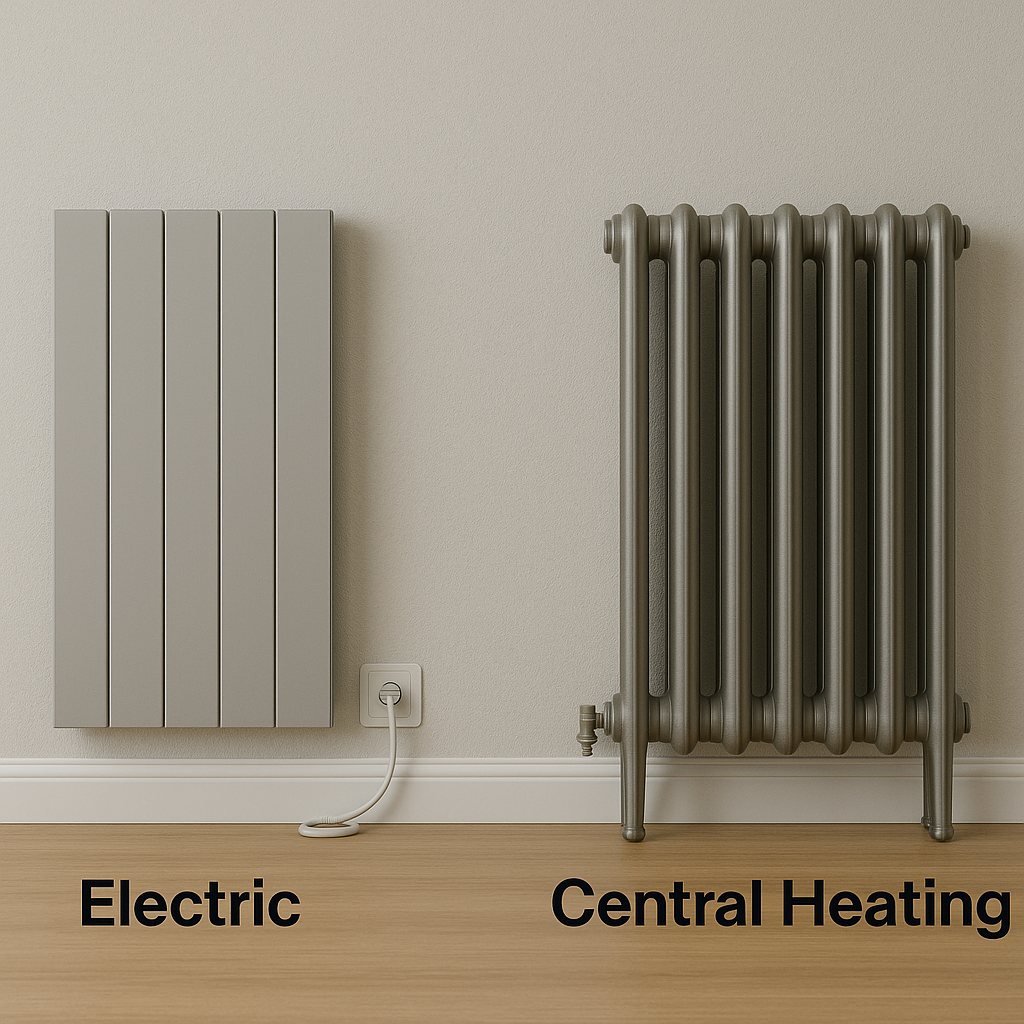
Electric vs. Central Heating Radiators: Which is Best?
Share
Electric vs. Central Heating Radiators: Which is Best?
If you’re upgrading your heating system, one of the biggest decisions you’ll face is choosing between electric radiators and central heating radiators. Both have unique advantages depending on your space, heating needs, and energy preferences. In this guide, we’ll compare electric and central heating radiators to help you decide which is best for your home.
👉 Need help with radiator sizing? Check out our Radiator Measuring Guide.
What Are Central Heating Radiators?
Central heating radiators are connected to your home’s boiler system and use hot water to heat your rooms. They’re the most common type of radiator in UK homes.
Benefits of Central Heating Radiators
- More cost-effective if you already have a gas or oil boiler.
- Typically cheaper to run compared to electric, especially in homes with multiple rooms to heat.
- Wide range of styles, including modern anthracite grey radiators and black radiators.
Drawbacks of Central Heating Radiators
- Require the boiler to be running to work — not independent.
- Less control over heating individual rooms unless thermostatic valves are installed.
What Are Electric Radiators?
Electric radiators are stand-alone heaters powered by electricity. They can be wall-mounted or portable and heat rooms independently of the central heating system.
Benefits of Electric Radiators
- Perfect for homes without a gas supply or in rooms where extending pipework is difficult.
- Heats rooms independently — ideal for heating only the space you’re using.
- Highly controllable with programmable thermostats and timers.
- No need for bleeding or plumbing work.
Drawbacks of Electric Radiators
- Generally more expensive to run compared to gas-powered central heating.
- Initial purchase costs can be higher than standard central heating radiators.
👉 Learn more about fast-heating options in our Aluminium Radiators Guide.
Which Radiator Type is More Energy-Efficient?
Electric radiators are almost 100% efficient at converting electricity into heat, but they can be more expensive to run per kWh compared to gas central heating. Central heating systems, while not 100% efficient, usually offer lower running costs in most homes.
👉 Looking for installation tips? Visit our Radiator Buying Guide.
Summary: Which Should You Choose?
| Feature | Electric Radiators | Central Heating Radiators |
|---|---|---|
| Installation | Simple, no plumbing | Requires connection to boiler |
| Running Costs | Higher (per unit of energy) | Lower with gas |
| Control | Individual room control | Whole system control |
| Best For | Independent spaces | Whole-home heating |
Frequently Asked Questions
Are electric radiators more expensive to run than gas?
Yes, electricity typically costs more per unit than gas. Electric radiators are more efficient but can have higher running costs overall.
Can I mix electric and central heating radiators?
Yes, it’s possible to have both electric and central heating radiators in the same home, especially in extensions, conservatories, or isolated rooms.
Do electric radiators need bleeding?
No, electric radiators don’t require bleeding as there’s no water system involved. They’re maintenance-free in this regard.
Is it cheaper to heat one room with an electric radiator?
For heating a single room occasionally, an electric radiator can be more cost-effective than running a full central heating system.
Final Thoughts
Choosing between electric and central heating radiators depends on your home setup and how you want to use your heating. Electric radiators are great for targeted heating and rooms without plumbing access, while central heating remains the most cost-effective choice for whole-home heating in most cases.
👉 For more heating advice and buying tips, visit our Radiator Guides Hub.
